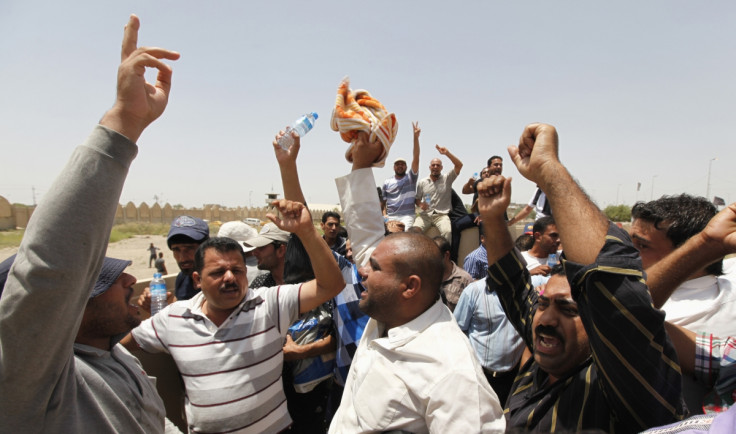Obama Refuses to Rule Out Military Strike on Isis as Iraq's Breakup Looms

US President Barack Obama has said military action against the Sunni Islamist militants of the Isis who are rapidly advancing on the Iraqi capital Baghdad is not ruled out.
The fall of Mosul and Tikrit to Isis and the capture of Kirkurk by the Kurds have heightened fears about the disintegration of the Iraqi state and the capital Baghdad is under the threat of an impending surge by the Sunni fighters.
Fighters from the Islamic State in Iraq and the Levant (Isis) have made lightning advance through northern Iraq, making their historic goal of the creation of a Sunni Islamic caliphate straddling Iraq and Syria look plausible.
Large swathes of land in the border regions of Syria and Iraq, both under Shia-led administrations, are now under the control of the hardline Sunni insurgents.
Iran may deploy troops
The surge of Isis has sent shockwaves across the region with Iran, the major Shia power, reportedly considering deployment of troops to support the shaky government of Iraqi Prime Minister Nouri al-Maliki.
The US, whose occupation of Iraq following the overthrow of Saddam Hussein in 2003 set off bloody sectarian clashes that culminated in the latest events, has said it has all options on the table to deal with the situation.
"There will be some short-term immediate things that need to be done militarily," Obama said.
"I don't rule out anything because we do have a stake in making sure these jihadists are not getting a permanent foothold in Iraq, or Syria for that matter."
The US had earlier rejected Maliki's request for aerial assault on the militants.
Following Obama's assertion of possible military action in Iraq, from where it withdrew troops in 2011, the White House clarified that the US will not send ground troops to Iraq.
While the United Nations Security Council offered unanimous support to Iraqi government, saying Iraq was facing a wave of terrorism, Obama reminded Maliki that his administration had failed to bridge the sectarian divide in the country and reassure the significant Sunni minority of their rights.
"This should be also a wakeup call for the Iraqi government. There has to be a political component to this," Obama said, according to Reuters.
Taking advantage of the chaos created by the rapid advance of the Sunni forces, the Kurds took control of Kirkurk, which they have long dreamed of as the capital of their future state.
By taking Kirkurk, home to Iraq's largest refinery, the Kurdish forces expanded their sway beyond the autonomous ethnic Kurdish north.
"The whole of Kirkuk has fallen into the hands of peshmerga," a spokesman of the Kurdish forces, known as peshmerga, said. "No Iraqi army remains in Kirkuk now," he said, Reuters reported.
US Vice-President Joe Biden telephoned Maliki and offered to enhance security support to the country whose armed forces withered under a spectacular onslaught by the Isis militants that threatens to redraw the region's map.
© Copyright IBTimes 2025. All rights reserved.






















